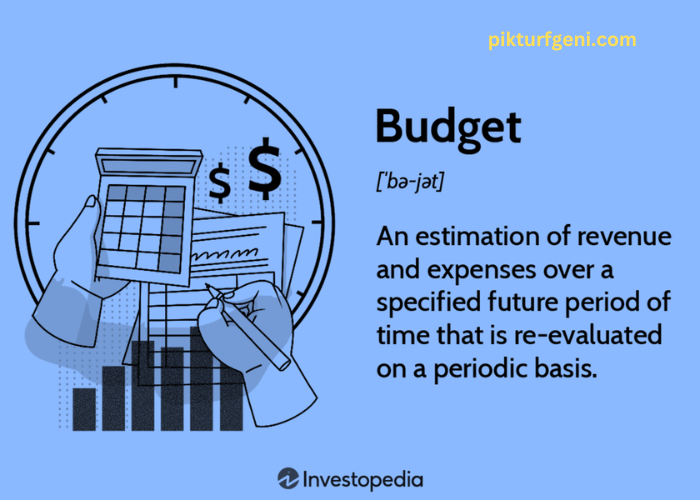Achieving financial freedom is typically associated with dramatically reducing spending. Cutting your budget in half may seem the quickest way to save money, but it frequently backfires. Taking drastic steps might result in fatigue, unforeseen costs, and unattainable targets that impede development. A personal cash budget and a balance-focused approach are two sustainable cash budgeting strategies that can lead to long-term financial freedom.
The Problem with Drastic Budget Cuts
While cutting your spending in half can seem like a quick and easy way to save money, it frequently ignores the complexity of real-world expenditures. Most budgets comprise debt payments, bills, and fixed costs like rent or mortgage payments. Unusually, cutting back on discretionary spending alone can result in sufficient funds to achieve financial objectives like credit card debt repayment, emergency fund building, or retirement savings. Additionally, making drastic sacrifices might leave little opportunity for happiness or the unexpected by ignoring significant elements of your life.
Insufficient finances can lead to impulsive purchases or significant unforeseen costs. A realistic budget combines essential spending with saving and investment rather than just cutting expenses.
How to Create a Budget That Works
Knowing what you make and what you spend is the first step in creating a sustainable budget. First, determine your net income, take-home pay after taxes, and other deductions. Next, monitor your spending to find potential areas of overspending. One useful budgeting technique is the zero-based budgeting method. With this approach, each dollar of your income is allocated to a specific purpose, such as paying off debt, saving money, or spending on discretionary items.
Steps to Create a Budget
List Fixed Expenses: List your fixed costs, such as rent, mortgage, auto insurance, and automobile payments.
Account for Variable Expenses: Keep track of your entertainment, electricity, and grocery spending to account for variable expenses.
Establish Savings Goals: Contribute a fixed sum to your emergency fund, retirement savings, or savings account.
Plan for Unexpected Expenses: Prepare for unforeseen costs by setting aside money for unforeseen circumstances such as medical bills or a job loss.
Track Spending Regularly: To make sure you’re on track, review your budget frequently.
Prioritize Saving and Debt Reduction
One of the most important personal financial concepts is “paying yourself first.” This entails prioritizing debt reduction and savings over discretionary expenditures. Setting up automatic withdrawals from your bank account can ensure you continually reduce debt and contribute to your savings objectives.
Build an Emergency Fund
It takes a robust safety net to achieve financial freedom. Most experts advise setting up three to six months’ costs in an emergency fund. Without causing you to lose sight of your other financial goals and objectives, this fund can cover unforeseen costs like auto repairs or medical expenditures.
Tackle Credit Card Debt
After taxes, high-interest credit card debt may quickly deplete your income. Prioritize paying off high-interest loans while only making the bare minimum on other debts. In addition to saving money, debt reduction enhances your financial status over time.
Balance Spending and Saving
Eliminating all discretionary expenditures is not necessary to achieve budgeting for financial freedom. Setting aside funds for the things that provide enjoyment to life is a part of budgeting for economic independence. Setting aside money for these costs, whether a family vacation or a night out, keeps you motivated.
To maintain this balance:
Realistic Goal-Setting – Steer clear of savings objectives that demand the sacrifice of all pleasure.
Track Your Progress – Keep track of your savings and make any necessary adjustments to your strategy.
Set Priorities – Identify the costs that align with your financial objectives and decide to concentrate on them.
Use Compound Interest for Your Advantage
Early saving accelerates growth because of compound interest. Over time, regular payments to an investing account, retirement fund, or savings account may greatly enhance your wealth. Optimizing your savings strategy may be achieved using financial planning tools and financial adviser guidance.
Avoid Common Budgeting Mistakes
Unrealistic Goals: Setting unrealistic goals frequently results in failure and dissatisfaction.
Ignoring Discretionary Spending: Setting aside money for pleasure and pastimes is critical to prevent burnout.
Not Performing Regular Budget Reviews: Your budget should adapt as your life does.
Not Budgeting for Unexpected Expenses: Without a safety net, unforeseen circumstances might cause delays.
Practical Tips for Sustainable Budgeting
Use a Cash Budgeting System: A cash budgeting system should be used to set aside extra money just for particular categories to keep spending under control.
Set a Predetermined Amount for Savings: Establish a specific goal and adhere to a monthly savings goal.
Automate Savings: Configure your savings account to receive payments automatically.
Limit Impulse Purchases: Don’t buy unnecessary things for 24 hours.
Focus on Long-Term Goals: Make plans for significant events like retirement or a down payment on a house.
Invest in the Right Tools: Financial planning software and budgeting applications may make tracking easier.
FAQs
Why does cash budgeting work?
By establishing tangible spending caps for monthly payments, cash budgeting assists you in managing discretionary expenditures.
How can I manage to save money and yet have fun?
A percentage of your budget should go toward discretionary expenditure, but debt reduction and savings should come first.
What is the best approach to deal with unforeseen costs?
To prepare for unforeseen circumstances like medical expenditures or job loss, create an emergency fund that can cover three to six months’ expenses.
How frequently should I check my budget?
A monthly budget review allows you to monitor your budget regularly for your progress and make necessary adjustments for changes in income or spending.
Conclusion
Living a life of deprivation or making dramatic sacrifices are not the keys to financial independence. It’s about making a budget that suits your priorities and particular objectives. You may create a financial cushion supporting a decent life by minimizing debt, balancing saving and spending, and making plans. Make reasonable objectives, use tools like monetary budgeting, and often assess your progress. It is possible to achieve financial independence with perseverance and self-control.
